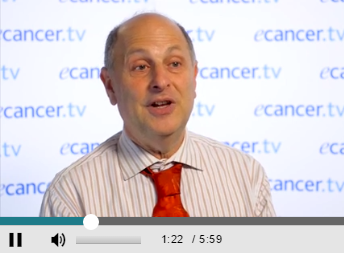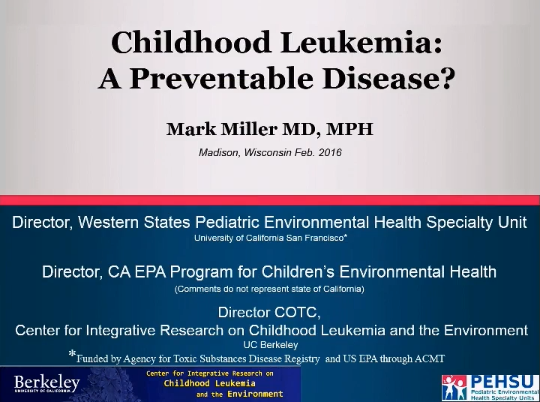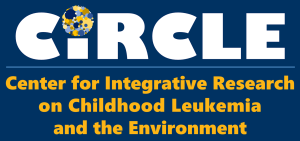Mark Miller, M.D., MPH
Research Translation and Community Outreach
Dr. Miller discusses the importance of research translation and community outreach. Check out this video for updates on some of the key research and methods of awareness our team has been working on. Learn how children are exposed to different kinds of contaminants and about the potential mitigating factors there are to prevent the exposure of children to environmental toxins. Often times, affected populations do not worry about the underlying factors, therefore it is important to spread this information to affected populations to create awareness and help prevent the risk of childhood leukemia.
Can we reduce exposure to risk factors associated with childhood leukemia and other cancers?
Dr. Miller meets with ecancertv at Childhood Cancer 2016 to discuss a survey of healthcare providers that revealed a gap in awareness about environmental risk factors for childhood cancer. Tobacco use, air pollution, and diet are among the risk factors for childhood leukemia, with important windows of exposure occurring even before conception. Dr Miller describes the need for wider awareness and public engagement by oncologists on regional and national levels to communicate preventative behaviours more fully. The video was produced by ecancertv.
Childhood Leukemia: A Preventable Disease?
Dr. Miller discusses strategies for translating childhood leukemia research into clinical practice. Follow the link at the left to the University of Wisconsin Video Library. Dr. Miller’s talk begins at the 5:25 minute mark. Alternatively, use the Chapter Tab at the bottom of the University of Wisconsin Video Library page to jump ahead to ‘Childhood Leukemia: A Preventable Disease?’
Rosalind Wright, MD, MPH, Dean for Translational Biomedical Sciences, Icahn School of Medicine at Mount Sinai, NYC
Early Life Social and Environmental Influences of Lifelong Health: Risk and resilience
Dr. Wright is a transdisciplinary lifecourse epidemiologist with a primary interest in prenatal and early childhood predictors of chronic disorders including asthma, obesity, neurobehavioral outcomes, and antecedents of chronic cardiometabolic disorders.
Social stressors, are as detrimental, if not more so, than chemical and physical exposures. What’s more, they begin to impact development prenatally and can be transmitted trans-generationally. Chemical and non-chemical social stressors can have synergistic effects. Dr. Wright explores how this perspective can guide us to more effective interventions.



